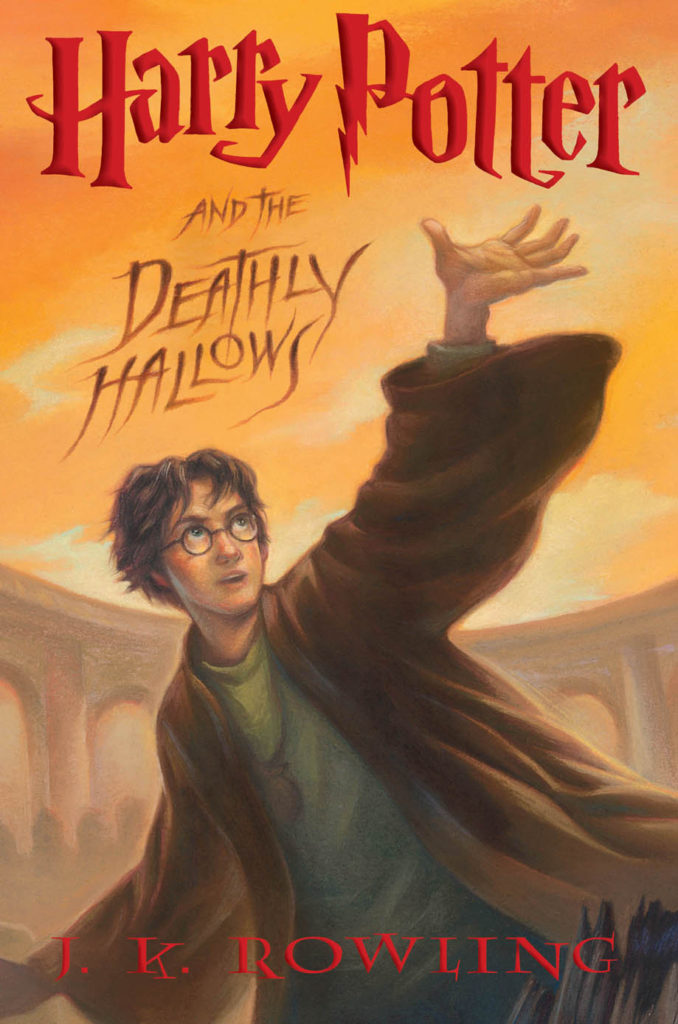Lynch Mob Mentality
 Speaking of discernment, remember the Christian witch-hunt over Harry Potter? If ever Christian’s gave themselves a black-eye of an embarrassing nature, that was it.
Speaking of discernment, remember the Christian witch-hunt over Harry Potter? If ever Christian’s gave themselves a black-eye of an embarrassing nature, that was it.
Embarrassing because reports began to surface about the rise in new members for Satanic groups and Wiccan covens due to kids reading Harry Potter, only to discover the “facts” and quotes being used as proof were lifted straight from a satirical story by The Onion. You can read the details of it at Snopes. At the end of the Snopes article is a quote that sums up the whole mess:
If The Onion’s parody has demonstrated anything, it’s that we should be worrying about adults not being able to distinguish between fiction and reality. The kids themselves seem to have a pretty good grasp of it.
A scathing indictment on many ministers and Christian leaders, who failing to use discernment and do any fact checking, swallowed whole-hog information dished out to them as factual, but in reality based on a fictional, satirical article. Let’s hope they subjected their theology to more academic rigors than just accepting as fact what their professors said.
Is this type of Three Stooges behavior endemic of the Christian culture?
Not really. You don’t have to look any further than politics to answer that question. Talking points with a group’s own spin on them are used in lockstep by most news organizations, usually without any fact checking. Opinion quotes are used as self-evident truths.
Even I fell to this temptation. I wrote an article on my blog titled, “Stop Online Piracy Act” and Indie-Publishing. I based my info on a New York Times article. It wasn’t until a few days after that article went live that I actually read the act itself. I realized it wouldn’t do what I’d been led to believe it would. YouTube and the like wouldn’t be doing anything different.
Lynch Mob Mentality
We are all subject to it at times. It is easier to take someone’s word for it than to check it out yourself. Especially if you tend to trust them. The problem is, no one is infallible, no matter how wonderful you might think they are.
Trust But Verify
Not too many months ago, Goodreads had to step in because readers lynched an author. She committed a faux pas that certain readers latched onto, and it snowballed into various tactics like putting her book into derogatory categories and posting a lot of one star reviews.
I’ve come to the point when anyone yells the sky is falling, I want to see their sources and decide for myself before jumping on any band wagons.
All too frequently those band wagons aren’t running to worthy goals, but away from unworthy fears.
Perhaps if we practiced a little more discernment in all our lives, we’d use it without thinking when it comes to Christian fiction. Then we can base our reviews on actual analysis rather than an Onion article.










































[insert cynical response]
I edit a daily devotional – and a significant part of my job is to remove urban myth and spurious feel-good stories from the mix. I don’t even trust Snopes.
However, in defence of some Christian ministers, I should point out that it is vastly harder to research any topic on the internet than ever before. Google tailors searches according to a past history, so that’s going to skew any results that appear.
To be genuinely discerning all too often requires us to read outside our comfort zone.
It’s all to easy to fall into the trap of having ‘trusted sources’ and relying on them, simply due to time pressures. Ultimately it depends on who is the most ‘trusted source’. That’s what too often passes for ‘discernment’ – agreeing with the most ‘trusted source’.
After all, it probably wouldn’t matter how much I pointed upwards and declared to the contrary, if Pastor Chicken Little, with his immensely formidable reputation, announced the sky is falling.
I agree. Some folks don’t have the time to research, or researching would be hard, and thus rely upon trusted sources. However, two issues on the Harry Potter negate that in this case.
1. While a parent might be excused for relying upon trusted sources, the trusted source should do some basic fact checking before declaring something is true. Ministers and journalist both fall into that camp, not to mention the first one who presented those “facts” as real, whether knowingly or unknowingly. If the fact check is inconclusive, then you don’t present them as fact, or at a minimum relate them as unverified and unsubstantiated reports.
2. While some myths might not be easy to spot, a simple Internet search on the quotes would have pulled up the Onion article they were based on. Such a fact check would have taken under a minute for a definitive conclusion.
The reason we don’t tend to do that is because when we hear it, if it jives with our preconceived beliefs on something, we accept it without question because it fits with what we expect the truth to be. We turn off our discernment when it fits with our conclusions.
In the Harry Potter case there was no excuse for a religious leader to promote falsehood in the name of Christ. Just as there was no excuse for me to fail to read the Anti-Piracy Act myself before repeating false statements about what it would do on my blog.
Too often, however, we fall into the trap of believing something simply because someone said it was true.
Amen.
After my wife and I married, I began introducing her to the Potterverse that I had only recently discovered. (First we had to enjoy reading The Lord of the Rings together.) Slowly we both became shocked by the flagrant lies and deception and myth-spreading to which we had both been exposed in evangelical culture. This was far more dishonoring to the Name of Christ and helpful to the father of lies (the Devil) than any actual occult content in Harry Potter books could have ever been.
Very true. People love to jump in the bandwagon for anything and everything. They take what they hear at face value and run with it, the more outrageous the better. Especially if it’s something they want to believe.
I remember the Harry Potter hoopla. It was the main reason I dawdled before finally picking up the first book to find out what all the fuss was about. And what I discovered pretty much from the very first page was everyone berating the series had absolutely no idea what they were talking about. I was flabbergasted. And I learned from that day forward to always, always research the facts and never take one person/article/post’s word for it. And if someone can’t respectfully present both sides of an issue, I’ve very likely not going to listen to a word they say due to the bias. I like to be well-informed and make up my own mind, not be told what to think.
http://www.pinterest.com/pin/245798092137627754/